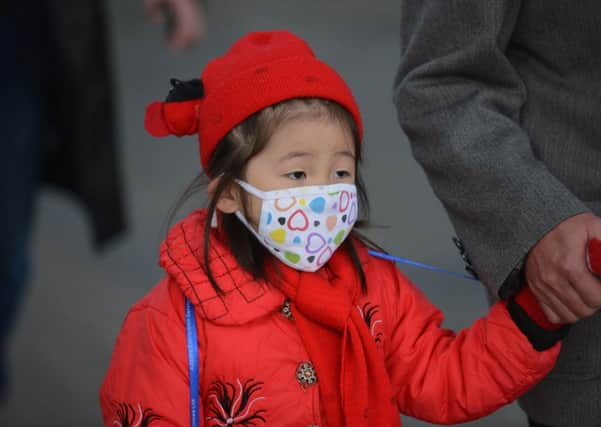China: 20% of farmland ‘poisoned by toxic metals’


The year-long research is being regarded as an indictment of unfettered industrialisation under the Communist Party’s authoritarian rule.
The report – previously deemed so sensitive it was classified as a state secret – names the heavy metals cadmium, nickel and arsenic as the main contaminants. Its release comes as the government is faced with growing public anger about China’s poisonous environment.
Advertisement
Hide AdAdvertisement
Hide AdThere were already widespread doubts about the safety of farm produce and the report confirms suspicions about the state of the soil following more than two decades of explosive industrial growth, the overuse of farm chemicals and minimal environmental protection.
It also points to health risks that, in the case of heavy metals, can take decades to emerge after the first exposure.
Health experts have previously identified several “cancer villages” in China near factories suspected of polluting the environment, where they say cancer rates are above the national average.
The soil survey was conducted from 2005 until last year, and showed contamination in 16.1 per cent of China’s soil overall and 19.4 per cent of its arable land, according to a summary released by China’s environmental protection ministry and its land and resources ministry.
The report said: “The overall condition of the Chinese soil allows no optimism.”
Some regions suffer serious soil pollution, worrying farm land quality and “prominent problems” with deserted industrial and mining sites, it said. Contamination ranged from “slight”, which indicated up to twice the safe level, to “severe”.
The report’s release shows China’s government responding to growing public anger at pollution with more openness.
Early last year, Beijing-based lawyer Dong Zhengwei had demanded that the government released the soil findings, but he was initially rebuffed by the environment ministry, which cited rules barring the release of “state secrets”.
Advertisement
Hide AdAdvertisement
Hide AdThat led to criticism from the Chinese public, and even from some arms of the state media.
The Communist Party-run People’s Daily wrote: “Covering this up only makes people think: we’re being lied to.”
The ministry later acknowledged the information should be shared, said Mr Dong, who attributed this week’s release of the report to public pressure.
Without a release of the information, “the public anger would get stronger, and soil contamination would deteriorate, while news of cancer villages and poisonous rice would continue to spring up”, he said.
He added that because some of the samples in the survey, which is the first of its kind in China, date back nearly a decade, the results were likely to be much worse if tests were taken today.
He said the government should conduct soil surveys and release the results on an annual basis and respond with immediate remediation measures.
China’s leaders have said they are determined to tackle the country’s pollution problem, though the threat to soil has so far been overshadowed by public alarm at smog and water contamination. However, recent scandals of tainted rice and crops have begun to shift attention to soil.